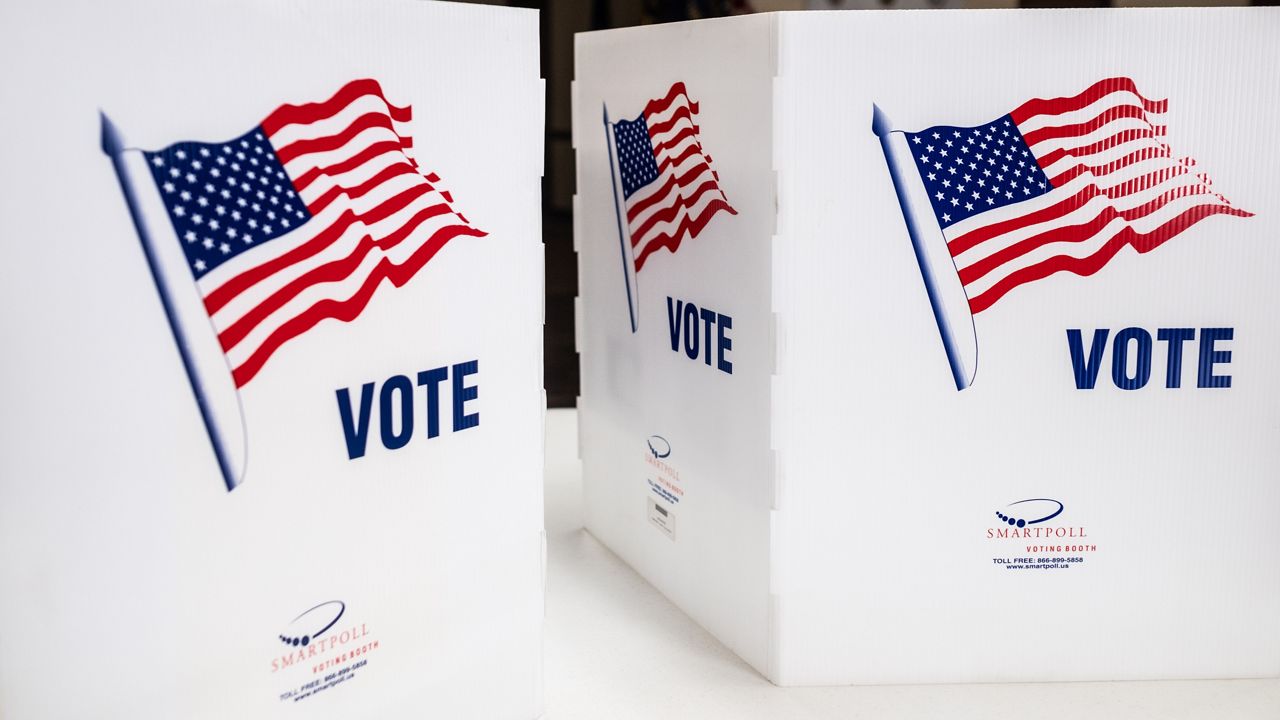A New York state Supreme Court judge in Syracuse on Tuesday ruled that the new state law that will move many local elections to line up with state and federal elections in even-numbered years violates the state Constitution.
The judge sided with Republican-led challenges to the law arguing that it conflicts individual county charters. Twenty New York counties are chartered, meaning they have locally drafted and approved laws outlining the structure and authority of county government, and there have been three separate amendments in the state Constitution allowing for and protecting counties' abilities to govern through charters.
At issue is a law passed by the Legislature and signed by Gov. Kathy Hochul in December 2023 that moves several local elections outside of New York City to even-numbered years starting in 2025, with the exception of some city or village elections, and races for county clerk, sheriff, district attorneys, local judges and others protected in the state Constitution.
“The prerequisites of a special law were not followed and the subject matter of the Even Year Election Law is inherently a local issue as it affects no state offices. The Even Year Election Law is unconstitutional as specifically prohibited by Article IX of the New York State Constitution,” Judge Gerard Neri wrote in his ruling.
Neri noted the fact that the law doesn’t apply to races like county clerk and sheriff would confuse voters.
The judge also argued that maintaining the election schedule as is means that local interests would not have to compete for attention with more widely covered state and national issues.
“Be it in the local paper, television, radio, online, or one’s mailbox, the competition for a voter’s attention is fierce. New York and the Plaintiff Counties are home to some of the most competitive House of Representative Races, and with that competition comes massive spending on advertising. There is simply no way local races can compete and obtain media attention, paid or earned, in that maelstrom,” Neri wrote.
The lawsuit was initiated by Onondaga County. Onondaga County Executive Ryan McMahon, one of the plaintiffs in the lawsuit, expressed his satisfaction to Spectrum News 1 in a statement.
"The decision today is a clear and decisive victory for the voters," he said. "As out-of-touch legislators in Albany are constantly passing unfunded mandates and crippling regulations, the decision today made crystal clear that home rule law is still a vital component of the New York State constitution."
Being overshadowed by bigger races was a large argument for those who opposed the legislation during its initial introduction.
"This would have been expensive and confusing for voters and the public. This had everything to do with playing politics with the election calendar and nothing to do with serving the public and encouraging more people to vote," Rensselaer County Executive Steve McLaughlin, also one of the plaintiffs on the lawsuit, said in a statement.
Advocates for the law argued the change will boost voter turnout in local elections.
“Voters participate when they are aware, informed, and believe their vote matters. Timing, as evidenced by the above, is a secondary or tertiary concern,” Neri wrote in his ruling. “Further distinguishing state from local concern is the fact that none of the affected offices are state offices. There is simply no state interest in the timing and changing of terms of local office.”
The state is expected to appeal the judge’s decision.
“It’s unsurprising the plaintiff’s hand-picked judge sided with the partisans who prefer fewer people voting in their elections. This case was always going to be appealed and I fully expect a more objective panel of judges to rule in favor of the law’s constitutionality," Democratic state Sen. James Skoufis, who sponsored the even-number election year bill in the Legislature, said in a statement. "In the meantime, the plaintiffs continue to waste local tax dollars on their senseless crusade to preserve lower turnout in elections.”



